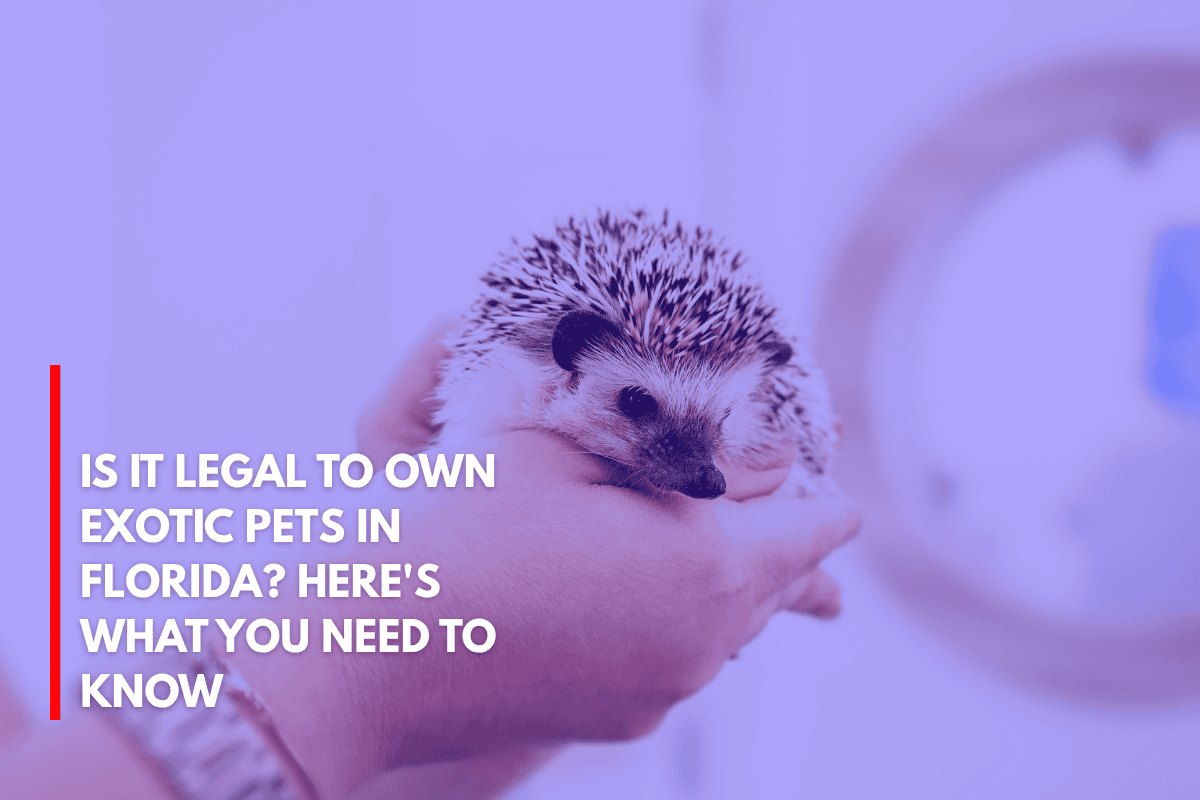Owning exotic pets in Florida is legal for many species, but the state strictly regulates which animals you can keep and under what conditions. Here’s a breakdown of the key points:
Permit Requirements
Permits Generally Required: Florida law requires a permit to possess many species of wildlife as personal pets. This applies whether you are a resident or just visiting with an exotic pet; temporary possession also requires a permit.
Three Classes of Wildlife: Florida categorizes exotic animals into three classes:
Class I: Includes large, dangerous animals such as lions, tigers, bears, and most primates. Permits are extremely difficult to obtain and are typically reserved for qualified professionals and institutions.
Class II: Includes animals like bobcats, servals, some primates, and others. Permits are available but require experience, facility inspections, and annual renewal.
Class III: Includes a wide variety of less dangerous wildlife, such as raccoons, skunks, foxes, opossums, and many others. A Class III permit is free, lasts two years, and is relatively easy to obtain for private ownership, but it does not allow you to take the animal out in public.
Exempt Species
No Permit Needed: Some animals, such as hedgehogs, chipmunks, prairie dogs, and certain non-venomous reptiles, do not require a permit for private ownership.
Native Bats and Wild-Caught Animals: It is generally illegal to keep native bats or any wild-caught animals as pets without specific authorization.
Public Display and Travel
Public Display: A personal pet permit does not allow you to take your exotic animal out in public. For public exhibitions, a separate permit is required.
Veterinary Visits: The permit does allow you to travel with your pet to the vet.
Prohibited and Restricted Species
Class I and II Animals: Many large, dangerous, or endangered species are prohibited for private ownership, or require specialized permits that are rarely granted to individuals.
Non-Native and Predatory Species: Florida prohibits the possession, importation, sale, and release of many non-native and predatory species, especially certain reptiles like large constrictor snakes and venomous snakes.
Key Takeaways
Permits are required for most exotic pets, with requirements varying by animal class.
Class III animals (like raccoons, foxes, skunks) can be owned with a free permit, but you cannot take them in public.
Some animals (like hedgehogs, chipmunks) do not require a permit.
Large, dangerous, or endangered animals are generally restricted to professionals.
Wild-caught animals and native bats are usually prohibited.
Public display requires a separate exhibition permit.
Always check with the Florida Fish and Wildlife Conservation Commission (FWC) before acquiring an exotic pet to ensure compliance with current laws.
Sources:
- https://myfwc.com/license/captive-wildlife/personal-pet/
- https://www.thesprucepets.com/exotic-pet-laws-1238565
- https://worldanimalfoundation.org/advocate/exotic-pets-in-florida/
- https://myfwc.com/license/captive-wildlife/











Leave a Reply